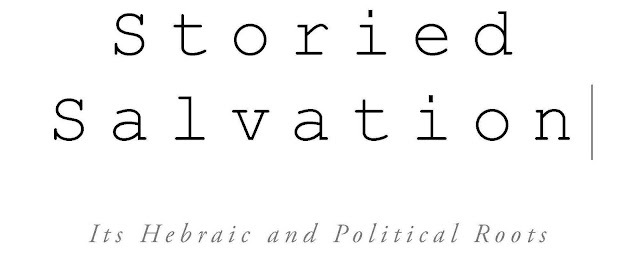The prologue of Hebrews begins by recalling how God had spoken in times past to Israel’s ancestors. God was still speaking, but now God had spoken through a perfect representative. The idea of God using agency seems to be continued here with the contrast between speaking by the prophets in ancient times to speaking by a son in these days.
There are several themes that grabbed my attention as I read through the chapter. The first is the author’s quotation from the Hebrew Bible (HB) in almost every verse. This says something to me; if the author wanted to draw his reader’s attention to a theme of the HB and intended them to gain insight, perhaps I too can gain insight in these ancient contexts when applied in a new way.
The writer cites the HB authoritatively, as in v. 6; “he says.” The writer quotes the LLX of Deut 32:43 and seems to use the “he” in reference to God. Interestingly, this is part of Moses’ speech and not God directly speaking. This writer takes the words of Moses with divine authority, as though they have come from God. Now, God has spoken through a son, divine speech through agency.
In this citation, the writer makes reference to “firstborn.” In the HB, firstborn is a matter of status, position, rank and eventually power, authority, and inheritance. It is not a term that demands a chronological order of any kind. This is a unique (Heb. yachid) son. Such ideas are reflected in Genesis among the patriarchs. There are the examples of Isaac, Jacob, Judah, Ephraim etc., none of which were chronologically first but yet took the preeminence of “firstborn.”
Another thing I noticed is “aiōnas” (world, age, universe) has often been translated as though it corresponds to material ontology. We live in a post-modern world that takes the enlightenment for granted. Therefore, our epistemology is governed by scientific parameters and our ontology is generally material oriented. This is even the case when reading Genesis. When interacting with a text of origins, it’s natural for us to bring our assumptions regarding material ontology to the text as though it shares the same ideals. We are more prone to read ontological creation into a text rather than a functional one (for more on this see John Walton's "The Lost World of Genesis One"). I am not sure that material ontology makes the best sense of the writer’s point regarding Jesus’ relationship to the “eon.” If this did speak of the creation of material ontology, with Jesus as the creator, it would put the writer in a conundrum.
The Hebrew Bible – which is cited authoritatively – would be blatantly contradicted. The reader would have to assume Jesus was “something else” and not human. I would have to assume that he existed before he was born. Does the writer of Hebrews actually start with these parameters? If I were a Jew living in the first century, the God I would be worshipping is the Israelite ancestral deity, Yahweh, the God of the HB. I would have no inclination toward tritheism, but rather would be aware of exalted and idealized human figures. If the writer is indicating that Jesus is ontologically identical with Yahweh, it creates a host of hermeneutical problems and flat out contradictions. If the writer desires to identify Jesus with Yahweh, Israel’s God, that is another matter. His sonship is closer in proximity than any before, he has been the first who was resurrected, he has been given a “name,” he acts as Yahweh does, he carries out divine prerogatives. If I am to assume that Jesus is ontologically identical with Yahweh, and he, through the incarnation, is paradoxically having a human experience, it seems to minimize the strong rhetorical value of his argument with the comparisons of Jesus to the angels, Moses, etc.
If Jesus is fully God for the writer of Hebrews, then why is it necessary to say he is better than the angels? Wouldn’t that be stating the obvious? Or, as will be encountered later in 3:3, Jesus is “deserving of more merit,” “worthy of more glory” than Moses. If the writer is trying to convey that Jesus just is the mighty God of Israel rather than the anointed agent, priest, prophet, servant, son and savior, why does he feel the need to say that Jesus is deserving of more merit than Moses? It reminds me of the book of Acts. I’ll get to that in the next post.






